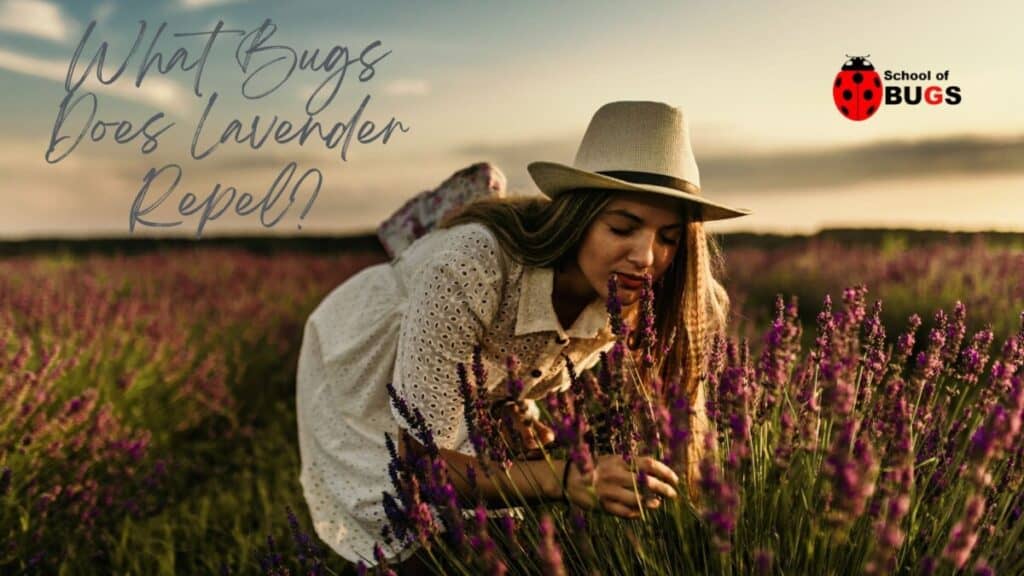
Lavender is one of the most versatile herbs any gardener can grow; whether it’s used as a medicinal, culinary, or aesthetic plant, it has been one of the most cultivated herbs for thousands of years. But did you know that lavender is also one of the most potent bug repellents?
Lavender is an excellent natural bug deterrent because of a non-toxic compound known as linalool. Linalool is used in various bug repellents and keeps bugs such as mosquitoes, spiders, fleas, ants, ticks, fleas, fruit flies, and bed bugs away from home and living areas.
- Lavender is one of the most versatile herbs, as it can be used as a medicinal, culinary, and aesthetic plant and is easy to grow.
- Lavender is an excellent choice for a natural bug repellent due to a compound within the oil known as linalool.
- This herb can keep various bugs and insects away from your homes such as mosquitoes, ants, ticks, and fruit flies.
- Lavender oil can be applied to bug bites to relieve itching and discomfort.
- Lavender is a great non-toxic alternative to many of the strong chemicals in sprays that have bases from DEET and picaridin.
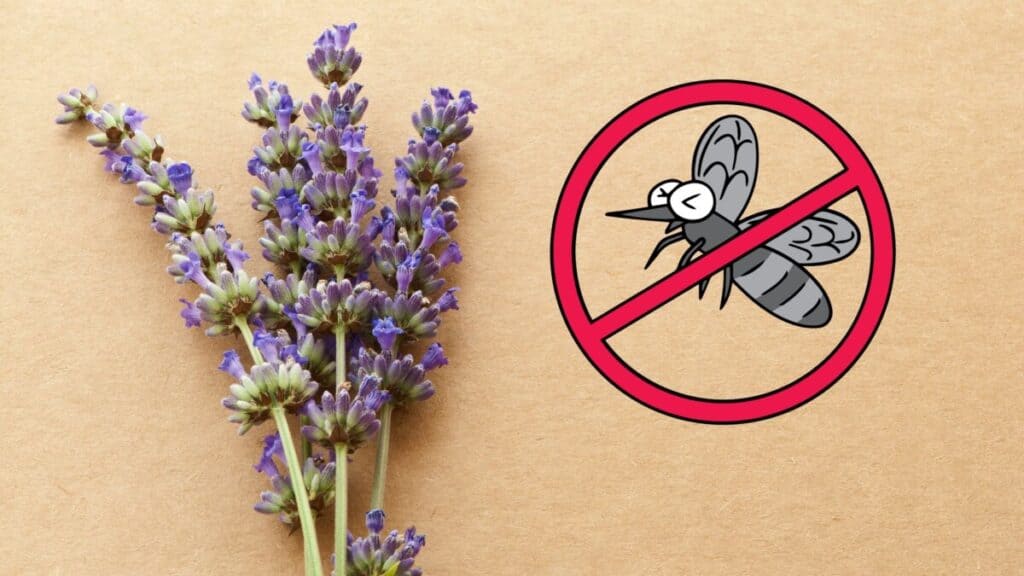
Lavender As A Natural Bug Deterrent
There are various times throughout the year when bugs and insects invade our home in swarms and can leave us with an uncomfortable feeling as well as numerous bug bites leaving us scratching throughout the day.
It’s essential to protect ourselves against these invasive insects and bugs, whether they be mosquitoes, ants, ticks, or fruit flies.
Firstly, it will save you the discomfort of continuous itching and reduce the risk of contracting various diseases such as Lyme and Zika. Lavender is one of the safest and most efficient ways to keep a large portion of these pests at bay.
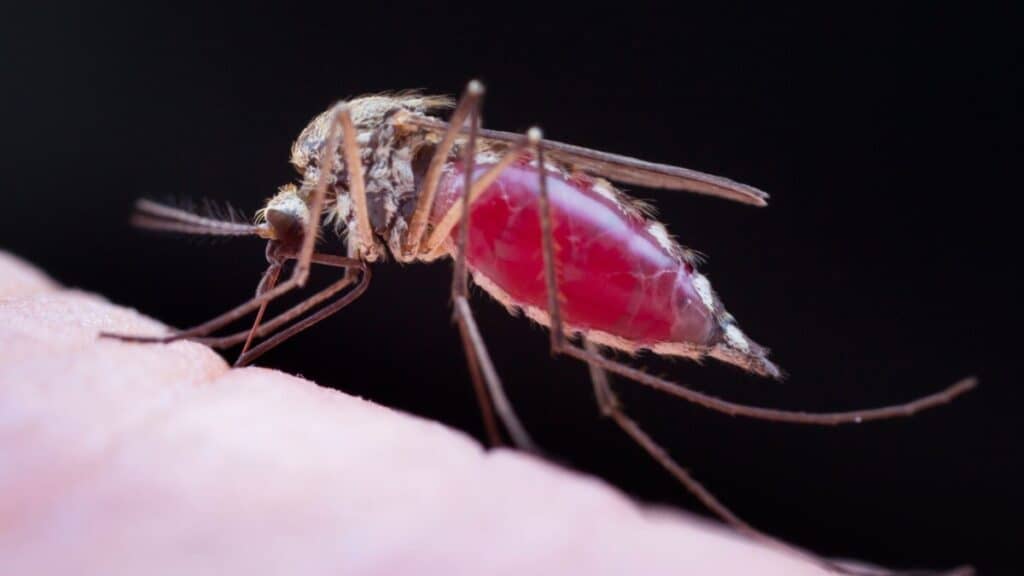
The reason behind lavender’s strong anti-bug qualities is a compound found within the plant known as linalool, which contains various insect-repelling properties.
It is also found in various other herbs such as basil, mint, thyme, and oregano. Still, lavender is widely accepted as the most potent and effective when it comes to repelling insects.
The scent released by plants that contain linalool is known to deter all sorts of pests and insects and can help clear your living spaces from these unwanted intruders.
Lavender and other herbs that contain linalool are often considered the most non-toxic and safest alternatives to pharmaceutical-based bug repellents.
What Bugs Does Lavender Repel?
Lavender is one of the most potent bug repellents thanks to its high linalool content, a compound which is used in numerous insect repellent products.
If your home is prone to small infestations of mosquitoes, spiders, ants, or fruit flies, lavender may be an excellent alternative to chemical-based repellents.
Lavender, when burned or used as an oil, can help repel numerous insects and bugs and keep your home and garden pest free.
Below we will list the significant insects and bugs which lavender can help repel from your home and living spaces, as well as your garden.
Mosquitoes
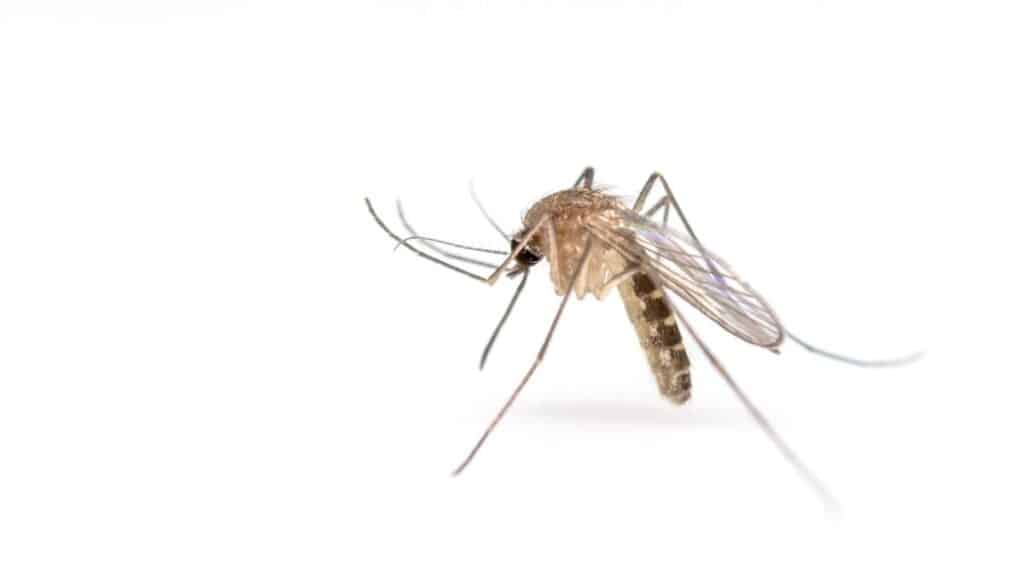
Mosquitoes are one of the most common pests that may irritate in and around your home, thanks to their love of humans.
They are attracted to the carbon dioxide that’s released from our skin, and a group of them can often cause despair as they begin biting you in various regions of the body.
When burned as an oil, lavender can actually mask the smell we give off that attracts these flying pests and even helps deter them from your home.
Alternatively, you can crush the flowers, which will release the oil and fragrance which deters mosquitoes from your home.
Ants
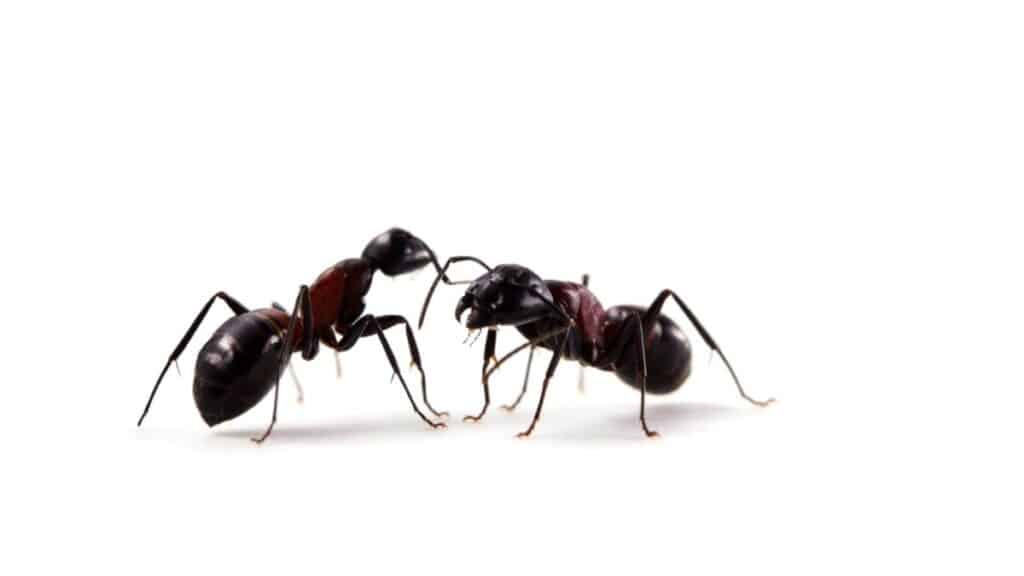
Ants are another common insect that can disturb your peace in the garden and home. Once they begin to hive in an area around the house, it will often require a professional to get rid of them, so it’s best to aim for prevention with these pests.
Much like various other insects, ants do not enjoy the smell of lavender as much as humans do. Thus, if you’re trying to get them away from your garden, a few plants spaced out around the porch area will be enough to leave a scent and deter them.
Alternatively, you can also keep a pot around areas where ants tend to gather, either a compost or trash area, and at the front door.
You can even crush up some of the leaves into a coarse powder and sprinkle this around areas you’ve noticed them gathering in groups.
Fleas And Ticks
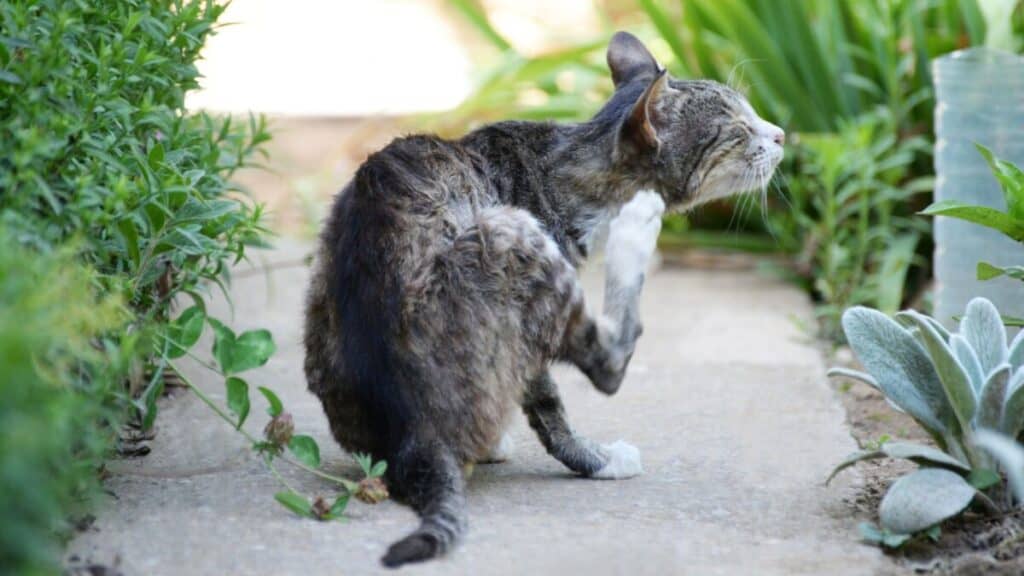
An infestation of fleas or ticks often spreads from pet to pet; however, they can be brought into the home and can prove to be a tricky pest to rid your home of.
While Lavender will not kill ticks or fleas, it can help keep them off your pets and, thus, out of your garden and home.
If you have a pet, lavender can help protect them against fleas and ticks by applying a small amount of lavender oil on their collar. Lavender is considered a safe and non-toxic repellent for both cats and dogs.
Spiders
Spiders have a love-and-hate relationship with humans; some people do not mind their presence at all and welcome the fact that they consume a large portion of the insects that invade your home.
In contrast, others are petrified of their company and would enjoy it if they did not appear in the house.
Luckily for those who are afraid of spiders, lavender can help deter them from your home and force them to seek shelter elsewhere.
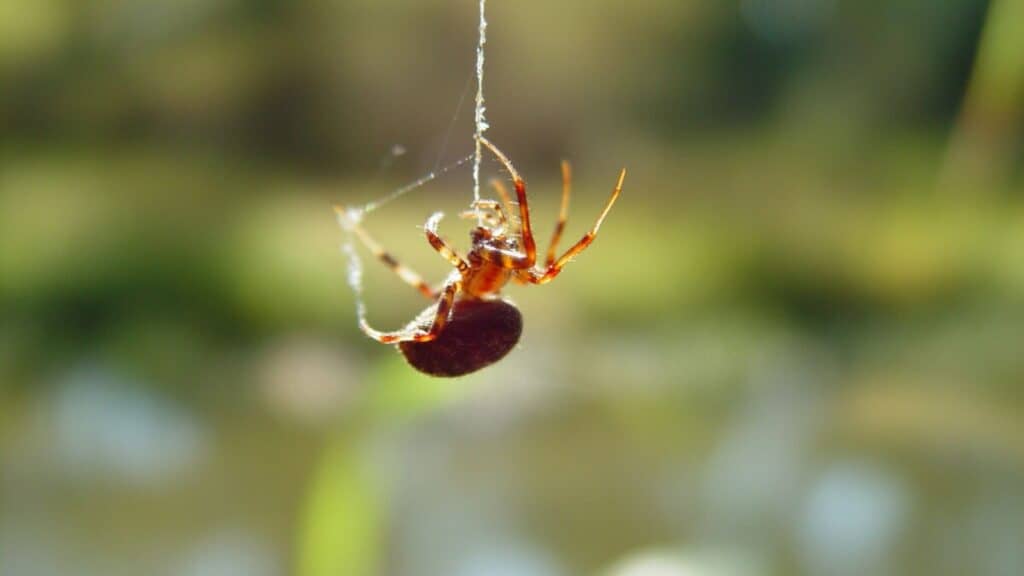
Spiders have a great sense of smell. However, they do not like strong scents such as that given off by my lavender.
If you want to ensure your home stays somewhat spider free, mix around 15 drops of your favorite lavender oil into a spray bottle filled with water and spray it around the house. You can also burn the oil on an oil burner, and this will work similarly.
Fruit Flies
Fruit flies are a particular kind of insect or pest that will appear whenever any type of fruit and produce is left out and has begun its decomposition process.
They will gather anywhere old fruit lies decaying, such as the fruit bowl, the kitchen, the trash can, and even the pantry.
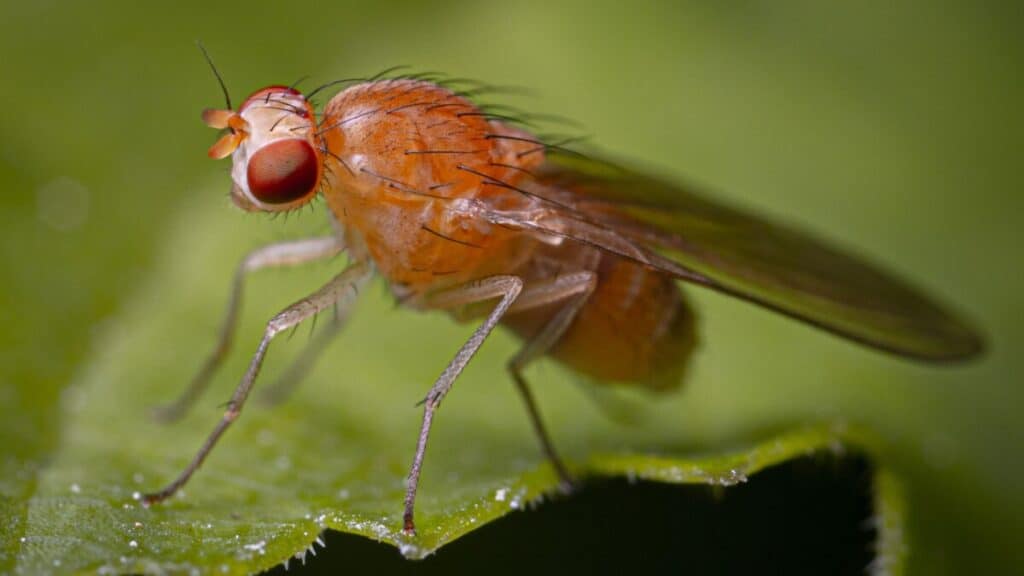
This specific kind of pest is known to breed very quickly, and if not treated, it may begin to nest and procreate just about anywhere there is a stash of rotting food, such as drains, trash cans, and kitchen cupboards. Thus, it’s best to aim for prevention in this instance as opposed to treatment.
Like most of the other pests on this list, fruit flies do not enjoy the strong scent released by the lavender plant and its oil.
One great method to ensure they stay away from your fruit bowl is soaking a dishcloth in a mixture of lavender oil and water before straining the excess liquid to leave a damp cloth. This will deter the fruit flies without warming them.
Bed Bugs
Bed bugs are every hard-working person’s nightmare, as there’s nothing worse than working all day and coming home to an infestation of nasty biting bugs in your place of rest.
But you shouldn’t panic if they arrive in your bed as there’s always a natural way to ensure you get a good night’s sleep.
While preventing these pests can be a task due to the numerous ways in which they can come into your home, lavender is an excellent deterrent and can even rid them from your home.
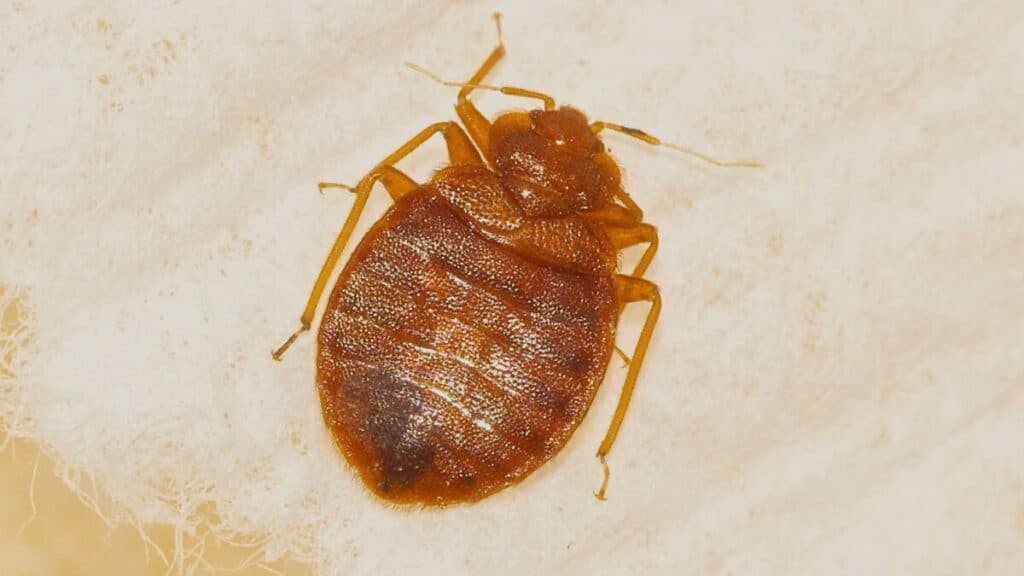
Lavender oil can effectively and efficiently destroy all the bed bugs that appear in your bed and their eggs.
Bed bugs despise the smell, taste, and aroma which come from both crushed lavender leaves and its oil. The best option is first to mix the oil into a spray bottle with water and spray this all over your bed, both top and bottom; then, once this has settled, give everything a clean in the washer and add some oil to this as well.
Bees
Bees are another one of those insects which, more often than not, are welcomed into the garden as guests; however, when they begin to venture into the home, this can usually change peoples minds about their presence.
If you feel you are getting more bees in your home than you’d like and would prefer if they would stick to pollinating your flowers in the garden, there are a few ways in which you can use lavender to make this happen.
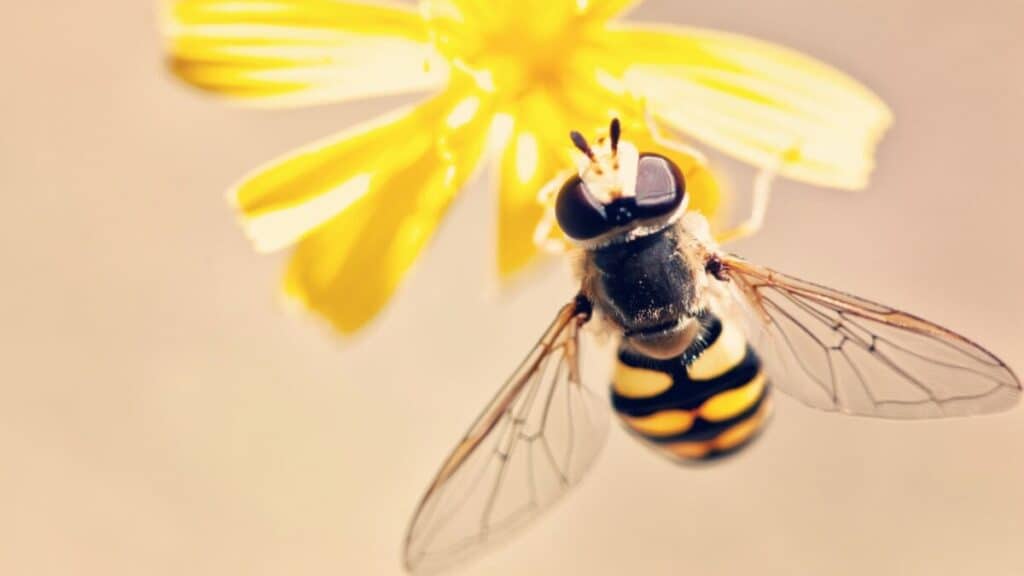
As bees do not enjoy the smell of plants such as lavender, the best way to ensure they do not venture into your room is to burn lavender oil.
You can also use the spray bottle method to keep them away from particular areas such as doors, window frames, and around your bed.
Cockroaches
Lavender can even work on giant insects, such as cockroaches, as they are yet another insect that despises the strong smell given off by the lavender plant and its oil.
Cockroaches can be tricky to manage once they start nesting, so it’s best to use prevention methods to keep them away from your home.
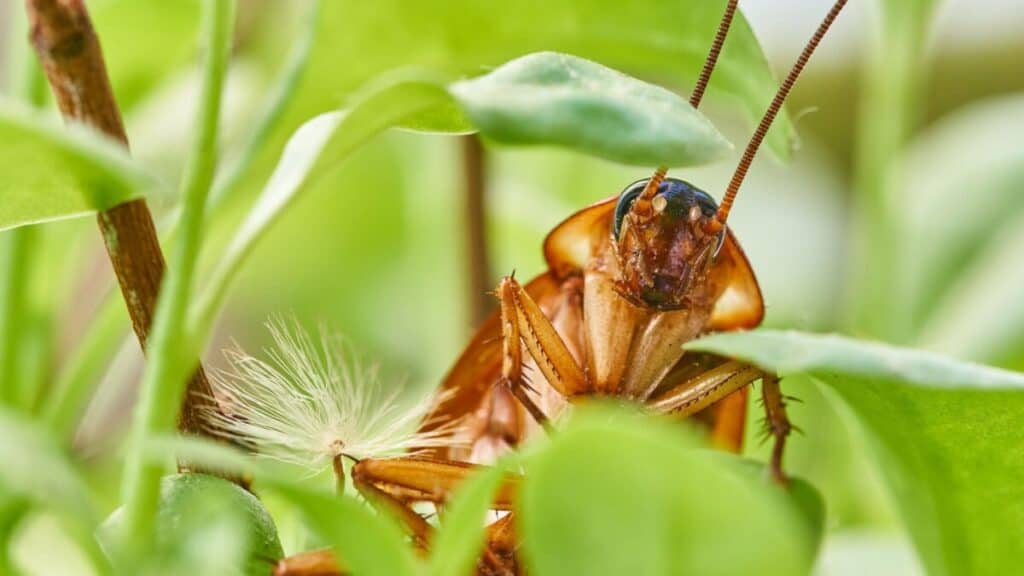
Lavender oil will help chase out the cockroaches who have already begun sheltering in your home and simultaneously stop new ones from appearing.
Alternatively, you can use the spray bottle method and spritz the places where you have noticed them coming in and out of your home.
Lavender As A Natural Bug Repellent
Lavender can be utilized as a natural insect repellent in numerous ways; whether you choose to purchase it in its oil form or use the fresh and dry leaves around the home, multiple choices can help you in your fight against unwanted pests.
While lavender is typically used as an oil to deter bugs, it also has excellent anti-inflammatory properties, which can help relieve the itch and discomfort from numerous bug bites.
When making a lavender anti-itch or bug-prevention lotion, you can apply the oil directly to the bites on your skin, but this may be too strong for some people’s skin.
Thus, you can use a carrier oil such as sesame, almond, jojoba, or apricot, which will make it easier on the skin.
This lavender oil mixture is also great for any insect bites such as those from a spider, ant, or fire ant. You can also use it if you’ve been stung by a bee or a wasp, and it will both soothe the sting and reduce the inflammation.
Conclusion
So, now you know that lavender is one of the most potent and non-toxic insect repellents you can get, why not plan to grow some for yourself and keep your home and garden free from unwanted pests?
You’ll have a sweet-smelling aroma that will freshen up your home, and the best part is that it’s a chemical-free insect repellent.
Alright, that’s it for this article, here are a few hand-selected articles that you might also find interesting reads:
What Chemicals are in plants that repel Insects?Natural Bug Repellent for Windows (7 Examples)
Which Pests can Peppermint Repel?
Recent Posts
Tiny Black Bugs in Bathroom NO WINGS: What They Are and What to Do!
Finding tiny black bugs in your bathroom can be uncomfortable, to say the least. Especially if they are persistent, or they appear in very large numbers, which they often like to do. When it...
Tiny Black Bugs in Plant Soil - What Are They & What To Do About It
A short horror story: You get a new houseplant. You do your best to take care of it. You’ve ensured that it has the right soil, the right amount of sun, it gets enough water. And then one day, you...

